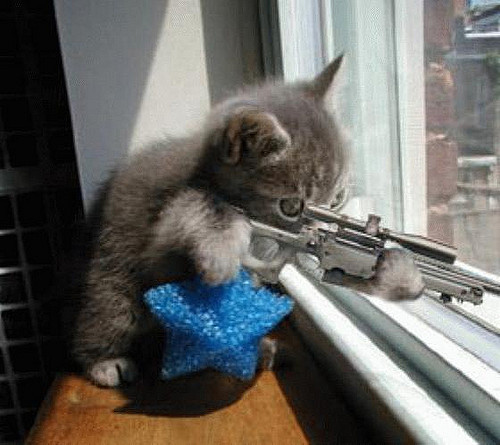If the Devil Wears Prada, does She Color-Coordinate her Pitchfork?
L’homme and I went last weekend to see “The Devil Wears Prada.” The book was a dishy gossipy tale of The Evil Boss, and while I didn’t completely love the book, I was looking forward to the movie – after all, Meryl Streep can take almost any piece of poo and turn it into gold, and I loved the deliciously evil Miranda Priestly. So I was looking forward to seeing this movie. I should have known better; after all, with very few notable exceptions, the movie is never as good as the book.
I also have trouble with willing suspension of disbelief, and it took quite a bit of that to accept that Anne Hathaway was either fat or not beautiful. But, okay. Certainly Anne Hathaway is not “model” thin or “model” pretty, so I’ll move past that.
What I disliked most about the movie adaptation was the (what I felt to be) complete shift of the theme; mainly, the book was a gossipy dish about working for a crappy boss, and the movie focused on the question of the choices women must make to advance in the cutthroat world of business.
Warning: there are spoilers after the jump, but nothing that watching the trailer for the movie doesn’t give away…
There were other reasons why I was not completely pleased with the movie, but they were also reasons why I didn’t like the book: I do not feel that women who pursue careers in the fashion industry are somehow more vapid or less intelligent than women who pursue more “intellectual” pursuits, or that fashion itself is silly or stupid. I disliked that Andy felt morally superior to her coworkers, and even to her bos – that Andy was “better” than her job as a personal assistant, and that it was beneath her to handle her boss’s dry cleaning, to get her boss coffee daily, or even to wrap gifts for the magazine’s clients and VIPs. I did not agree that these demands made Miranda the Devil. Certainly, it makes for a cruddy job, but everyone has to pay their dues at the lowest levels in order to prove their worth and move up the ladder.
Not only did I feel that these tasks assigned to Andy did not make her boss The Devil (in either the book or the movie), I felt many of the tasks asked of Andy were not only reasonable, but actually served a purpose. And, I found Andy to be somewhat unsympathetic due to her “I am better than this” attitude. Yes, being in charge of someone’s dry cleaning is not the most stimulating of tasks, but when you work for a fashion magazine and have no knowledge of haute coture, learning about the materials and how they are cared for can be informative, if Andy had looked at the task as a learning experience instead of indentured servitude. Additionally, some of Miranda’s “impossible tasks” weren’t so impossible, even if Andy’s first reaction was that she could not possibly do what was asked of her. Instead, Andy found often times that, despite the seemingly impossible task, the assignment in fact was quite doable with a little ingenuity. When you know “I couldn’t do it” is not an acceptable answer, you find a way to get it done.
The central question of “The Devil Wears Prada,” for me, was: “Is Miranda Priestly ‘The Devil’?” Were the tasks asked of Andy really indicative of a boss so horrible she was equitable to Satan? My biggest problem with the movie adaptation was the possibility for interpretation that Miranda was The Devil simply because she was cold and unemotional in her pursuit of her career above the interpersonal; that she would put her career-focused self-interests above her friendships and her family, and as a woman, this choice is somehow unfeminine. Miranda was The Devil because she was a woman, making business decisions as a man would, and not caring about the feelings of the people around her the way a woman should.
And thusly, why I disliked the movie: in a plot point developed for the movie and not appearing in the book, Miranda makes a business decision that preserves her job at the expense of her friend/fashion editor’s career advancement outside the magazine. Honestly, should Miranda have voluntarily allowed herself to get pushed out of her job to preserve the feelings and enhance the career of someone else? Would we expect that kind of self-sacrifice of one’s career for one’s professional friendship of, say, Donald Trump or Steve Jobs? But, because Miranda is a woman, she is The Devil because she makes a business decision that preserves her career at the expense of a friendship. Andy, as the protagonist, is set up as making “the right choice” when she sacrifices her career to preserve her relationship with her boyfriend (whereas Movie Miranda loses her husband due to her career focus). Andy is “the hero” for keeping her integrity when she ultimately quits her job upon realizing she herself is on the path to becoming like Miranda and having a powerful career at the expense of friendships.
What this movie highlights for me is the ultimate paradox of being a woman in business: Either you live up to the gender expectations and make sacrifices in your career to have a social and family life, or you choose a career in exchange for your family, friends, and femininity. And even then, we don’t get a fair choice: women who choose the latter are vilified – we are somehow traitors to our gender and objects of pity. We cannot possibly be happy or fulfilled if we do not have a husband or a baby. So while we get the appearance of a choice, we cannot retain our femininity and choose business. Through that sacrifice, businesswomen become bitches and are labeled The Devil. I don’t think you’d ever see, “The Devil wears Armani.” In fact, working for an awful male boss is, “Swimming with Sharks.” A shark is certainly scary, but when a shark attacks a person in the ocean, it does not do so out of malice. Certainly being called a shark is not a compliment, but an evil male boss is compared to one of nature’s most perfect predators, while the evil female boss is compared to ultimate evil.
While there certainly are more options for women today to pursue a career, somehow that promise of the elevator past the glass ceiling is more insidious. Yes, women can have a power-career, but in doing so the perception is that they become cold and hard in the achievement of that goal, that women cannot possibly be happy with that choice of career if it comes at the expense of a husband and children (men in that position, by contrast, are eligible bachelors and must be happy with their power and with their ability to pick and choose from bevies of beautiful women, or at the very least their happiness is not in question).
And this media vilification of career women provides perfect plausible deniability – there is no glass ceiling; women have the choice, but prefer to opt out of the rat race and choose to have a family instead of a career. And movies like “The Devil Wears Prada” train women to choose thusly by portraying the hero as the woman who regains her integrity and her boyfriend by apologizing for the choices that put her career before her relationship.







